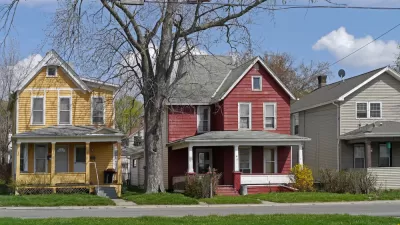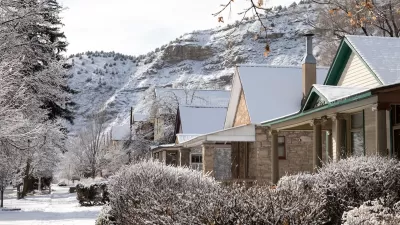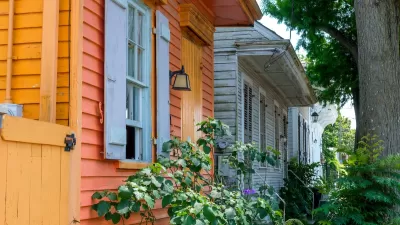Weatherization and efficiency upgrades can reduce energy costs and keep older homes habitable, but many low-income households are excluded from federal funding.

“The nation’s affordable housing crisis has gotten some semblance of attention — with journalists writing stories on the rising cost of rent, the scarce supply of new housing, the looming threat of eviction — but one aspect of the crisis has gone consistently overlooked,” writes Rachel M. Cohen. “On top of the severe housing shortage that currently exists, nearly 6 million homes nationwide have moderate to serious home health hazards.” These hazards will ultimately make the homes uninhabitable, Cohen warns.
“Issues like lead paint, leaky roofs, and knob-and-tube wiring don’t just leave tenants and homeowners in substandard, unsafe housing. They also leave families — mostly poor families — shut out from energy efficiency programs the federal government already funds to upgrade homes.” According to Cohen, “nationally, according to a recently published E4TheFuture analysis, 10 to 30 percent of income-eligible clients are deferred from weatherization upgrades each year for health and safety problems, with those deferrals on the rise.” Cohen argues that “Addressing this problem could help solve both the affordable housing and the climate crisis at once.”
In Pennsylvania, state lawmakers are attempting to do just that with new legislation. “Introduced in March by Democratic state Sen. Nikil Saval, the Whole-Home Repairs Act would provide eligible residents with grants up to $50,000 to make needed home repairs, and small landlords could apply for the same amount in forgivable loans. The bill would also aim to ramp up investments in workforce development, to address the growing shortage of qualified workers able to address the repairs.” The bill could serve as a model for other states and the federal government, Cohen writes. “While the home repairs bill would not itself go toward making energy efficiency upgrades, it would position more homes to be able to access the WAP funds.”
FULL STORY: How to fight the affordable housing and climate crises at once

Planetizen Federal Action Tracker
A weekly monitor of how Trump’s orders and actions are impacting planners and planning in America.

Map: Where Senate Republicans Want to Sell Your Public Lands
For public land advocates, the Senate Republicans’ proposal to sell millions of acres of public land in the West is “the biggest fight of their careers.”

Restaurant Patios Were a Pandemic Win — Why Were They so Hard to Keep?
Social distancing requirements and changes in travel patterns prompted cities to pilot new uses for street and sidewalk space. Then it got complicated.

Albuquerque Route 66 Motels Become Affordable Housing
A $4 million city fund is incentivizing developers to breathe new life into derelict midcentury motels.

DC Area County Eliminates Bus Fares
Montgomery County joins a growing trend of making transit free.

Platform Pilsner: Vancouver Transit Agency Releases... a Beer?
TransLink will receive a portion of every sale of the four-pack.
Urban Design for Planners 1: Software Tools
This six-course series explores essential urban design concepts using open source software and equips planners with the tools they need to participate fully in the urban design process.
Planning for Universal Design
Learn the tools for implementing Universal Design in planning regulations.
Heyer Gruel & Associates PA
JM Goldson LLC
Custer County Colorado
City of Camden Redevelopment Agency
City of Astoria
Transportation Research & Education Center (TREC) at Portland State University
Camden Redevelopment Agency
City of Claremont
Municipality of Princeton (NJ)





























